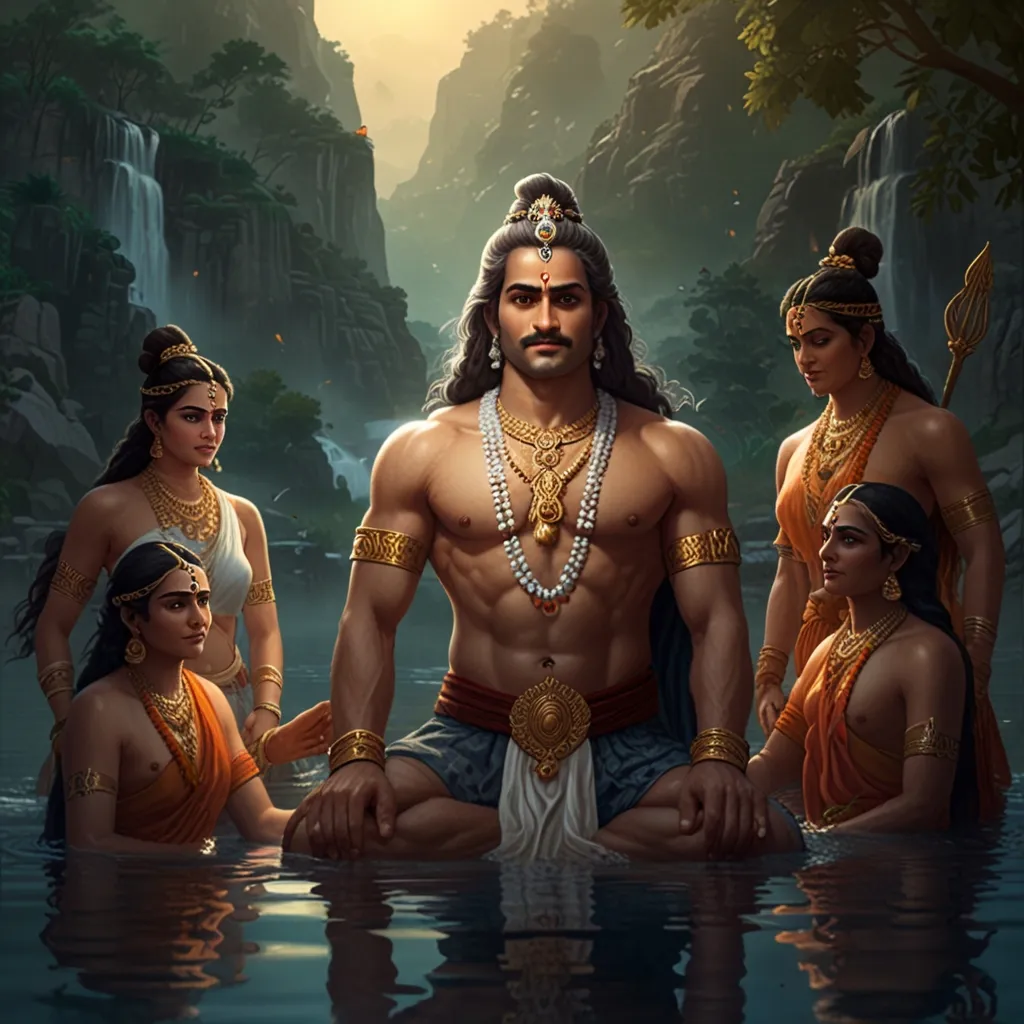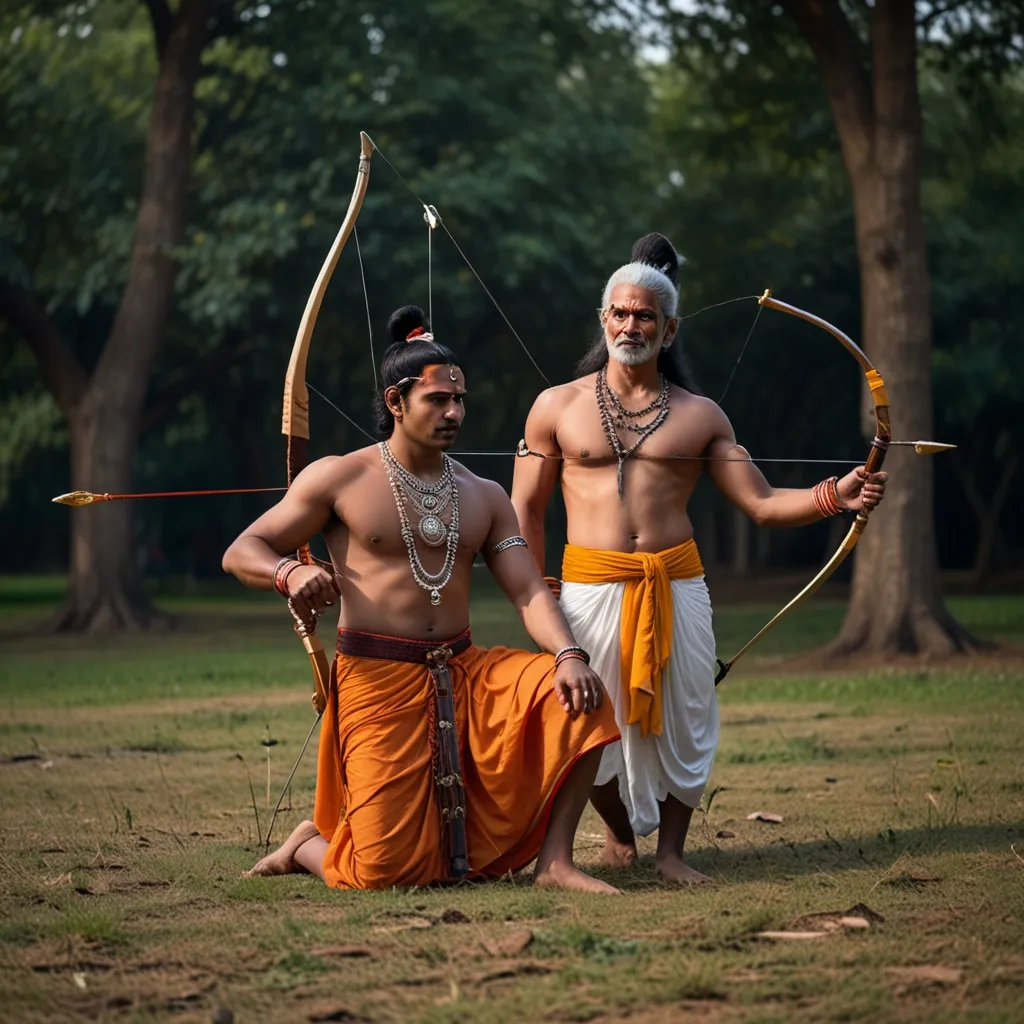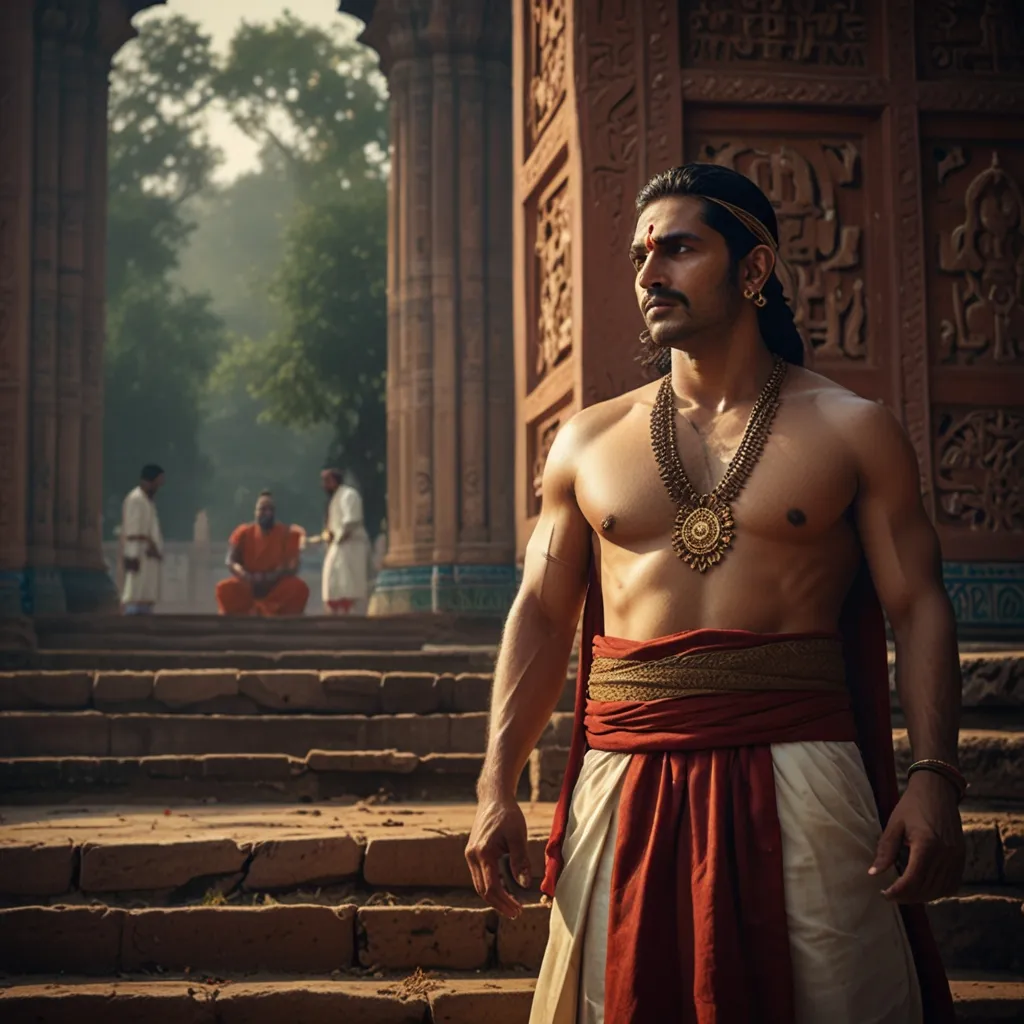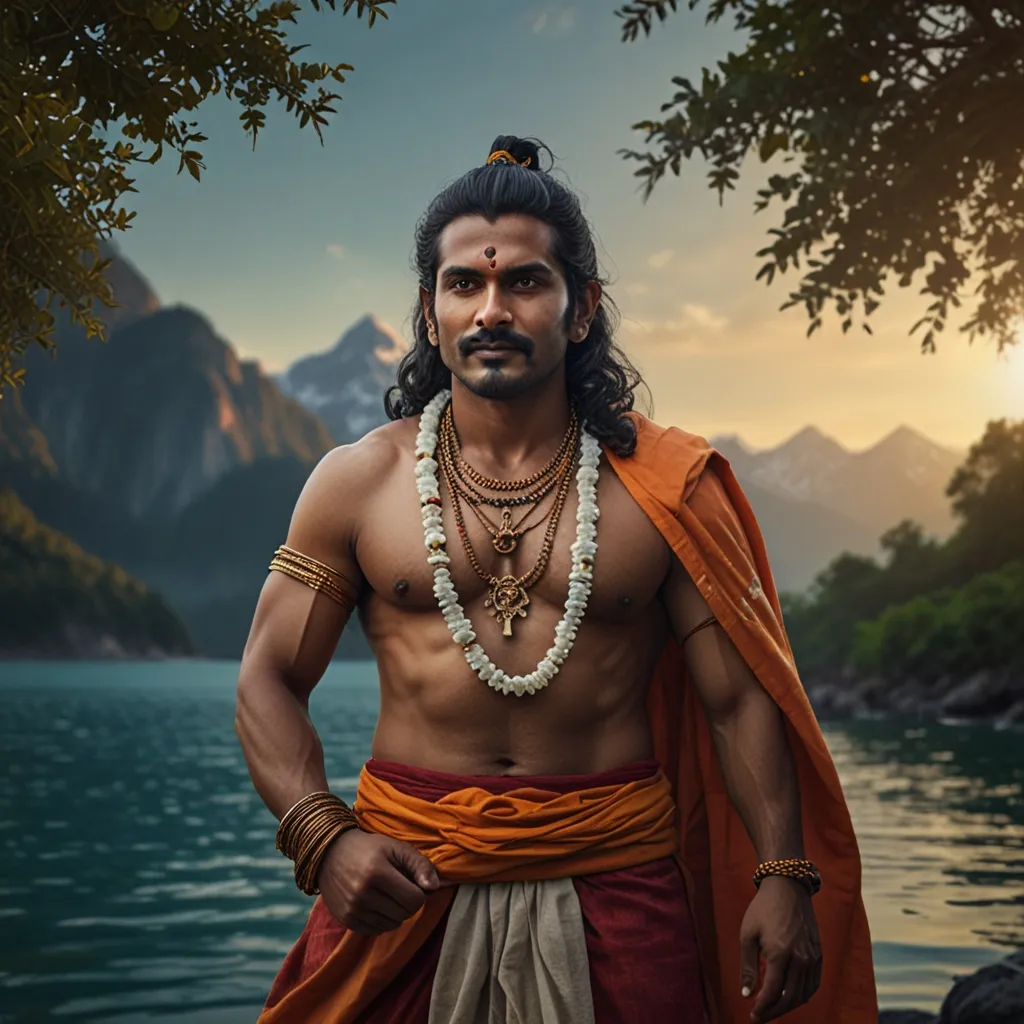In the ancient city of Hastinapura, Shantanu reigned, a king whose wisdom was renowned far and wide. Hailing from the prestigious Kuru dynasty, Shantanu had a life marked by a deep divine connection. His story took a fascinating turn when he encountered Ganga, the personified goddess of the Ganges River. Mesmerized by her divine beauty, Shantanu fell head over heels in love and proposed marriage. Ganga, with divine elegance, agreed to marry him but attached one unusual condition: Shantanu should never question her actions, regardless of how bizarre they might seem. Blinded by love, Shantanu did not think twice before agreeing.
Their marriage brought forth eight sons, but each time a child was born, Ganga would take the baby to the river and drown it. Bound by his promise, Shantanu watched in silent agony, his heart shattering with every loss. The torment continued until the birth of their eighth child. Unable to mute his pain any longer, Shantanu broke his silence and pleaded with Ganga, pleading her to spare the child’s life. Ganga, with their pact now void, revealed herself as the goddess of the Ganges. She explained that their children were celestial beings known as the Vasus, cursed to be born as humans. Their seventh son, Prabhasa, was doomed to a prolonged mortal existence, while she named their eighth child, Devavrata, who she promised to return at the right time.
Years blurred by as Shantanu waited beside the river filled with longing and regret. One fateful day, Ganga emerged, accompanied by a striking young man. This was Devavrata, now trained in the arts of war by the legendary sage Parashurama. Shantanu’s spirits soared as he embraced his son, swiftly declaring him the crown prince of Hastinapura. After reuniting father and son, Ganga disappeared, leaving Shantanu to guide the future ruler.
Devavrata, now known as a skilled warrior and just leader, became the heartbeat of the kingdom. Yet life for Shantanu was not without its hurdles. He fell in love once more, this time with Satyavati, a fisherman’s daughter. Her father demanded an unusual condition for their marriage: Satyavati’s son must inherit the throne. This complicated Shantanu’s position, as Devavrata was already named the heir.
Seeing his father’s turmoil, Devavrata made a selfless and profound decision. He renounced any claim to the throne and vowed never to marry to ensure Satyavati’s progeny would ascend to kingship. His vow of celibacy and lifelong service to the throne was so monumental that it earned him the name Bhishma, meaning “the one who took a terrible oath.”
Bhishma’s life was a testament to his unyielding dedication. He emerged as the mightiest warrior of his age, celebrated for his unmatched archery, steadfast integrity, and wisdom. Bhishma assumed the role of supreme commander of the Kuru army and was revered across the land.
He became an integral part of the epic saga, the Mahabharata, playing a crucial role in the Kurukshetra war. Despite his years, Bhishma fought with unmatched vigor on the side of the Kauravas, his nephews. His battlefield prowess remained unchallenged until the war’s tenth day, when he was struck by countless arrows and fell, creating a haunting bed of arrows.
Even as he lay on his deathbed, Bhishma’s character shone through. For fifty-one nights, he lingered, dispensing invaluable wisdom to the Pandavas, including the hallowed Vishnu Sahasranama. His passing was a moment of immense sorrow, signaling the end of an epoch. Bhishma stood as a warrior of honor, a man whose legacy was etched in an unyielding devotion to his word.
Bhishma’s story is more than a tale of power and divinity; it’s a narrative rich in commitment and the gravity of keeping one’s promises. His journey was a continuous testament to selflessness and duty, traits that continue to inspire generations. In Hinduism, Bhishma is venerated as a figure of immense reverence, with his death anniversary commemorated as Bhishma Ashtami, a day to honor a hero who defied death and epitomized unyielding integrity throughout his life.
Bhishma, the stalwart of Hastinapura, embodied the essence of resolve and service. His vows and the sacrifices entwined with them speak volumes about the culture and values revered in ancient times. His tale remains a luminous thread in the grand tapestry of the Mahabharata, a thread interwoven with lessons on the nobility of selflessness and the sanctity of one’s word. A life lived in adherence to one’s promises, regardless of the personal cost, paints the portrait of Bhishma—a figure of unwavering strength and unparalleled legacy.
In essence, Bhishma’s life narrative teaches us that true greatness often lies in the sacrifices we make and the promises we uphold. His vows, his battles, and his unwavering spirit are not just facets of an epic but are mirrors reflecting the virtues esteemed across generations. Through devotion, honor, and unshakeable integrity, Bhishma’s story continues to resonate, offering timeless inspiration to those who seek to lead lives grounded in noble principles.






